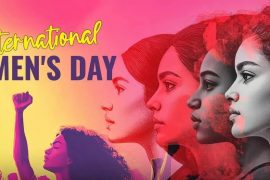In August, Penn State Extension (in the College of Agricultural Sciences) partnered with the Global Give Back Circle (GGBC), an organization focused on providing education and mentorship opportunities to young women in five African nations. Global Give Back Circle “leverage[s] the time and talent of women globally, through a Mentorship Program designed to help at-risk girls continue their education and embrace economic freedom,” according to their website.
Penn State Extension was first approached by GGBC in August regarding a set of online extension courses. Brent Hales, associate dean in the College of Agricultural Sciences, runs Penn State Extension.
“We were approached by them because they wanted to use our courses to train teachers,” Hales said.
Even before the pandemic, Penn State Extension had invested significant time and energy into creating digital courses, webinars, and other resources to disseminate online. This included creating a new office called Marketing and Digital Education. When the pandemic hit, they were able to make a quick transition to remote delivery.
“We actually had around 50-55 courses ready to go that we decided to make free for everyone in the first few months of the pandemic,” said Hales. “It quickly became apparent how popular they were – and how broad the participation was.”
The courses were being taken by people from across the world. Eventually, they had to shift to a reduced-fee model instead of a totally free model. During the time between April 1 and Aug. 31, over 220,000 people signed up for one of the courses or webinars made available by the college.
“This wasn’t even in the same area code of what we expected,” Hales said. “It blew us away.”
Having these courses available for free or even at a reduced price costs the college money, Hales said, but he has no problem justifying it.
“It fits with our mission – it is our mission,” he said. Penn State Extension’s mission reads:
Penn State Extension is a modern educational organization dedicated to delivering science-based information to people, businesses, and communities. We provide access to face-to-face and online education to our customers—when they want it, where they want it, and how they want it — to help them address problems and take advantage of opportunities for improvement and innovation. Partnering with and funded by federal, state, and county governments, we have a long tradition of bringing unbiased support and education to the citizens of Pennsylvania. We make a difference locally through focused engagement, and more widely to customers connecting in the digital landscape.
So when, in August, the Global Give Back Circle reached out to Hales, there was already infrastructure in place. By that time, though, the courses had moved to a low-cost model – which GGBC and the members of its program could not afford. So the Extension program decided to offer courses to the organization free of charge.
According to GGBC, the courses will reach over 200 young women in Kenya and Rwanda, as well as alumni of the program. Participants are provided with the technology (laptops or tablets, as well as internet access) to complete the course.
“Most of our beneficiaries come from rural areas where they are acquainted with farming, or they come from low-income urban areas where they are acquainted with small-scale agribusinesses,” said Lidemta Kawira, Program Manager of GGBC, in a thank-you letter to Hales. “Not only is there a farm at ‘HER Lab (a lab in West Pokot, a marginalized community in Kenya) where they can practice the acquired skills, but they will also be agents of change and spread the knowledge to so many other rural women in their communities.”
“This is a laudatory project and matches up perfectly with the extension philosophy of capacity-building,” said Hales. “The young women involved will not only build knowledge and skills for themselves; it will have a generational effect as they pass these on for generations to come.”
GGBC made the courses available beginning in early September, with a window of 60 days for participants to complete the course. Hales hopes that, at the end of the window, GGBC can provide some helpful feedback.
“We’re looking forward to seeing how they can help us do better as well,” Hales said. “And we’re hoping to partner with them on more initiatives in the future.”
Penn State News





Comments are closed.